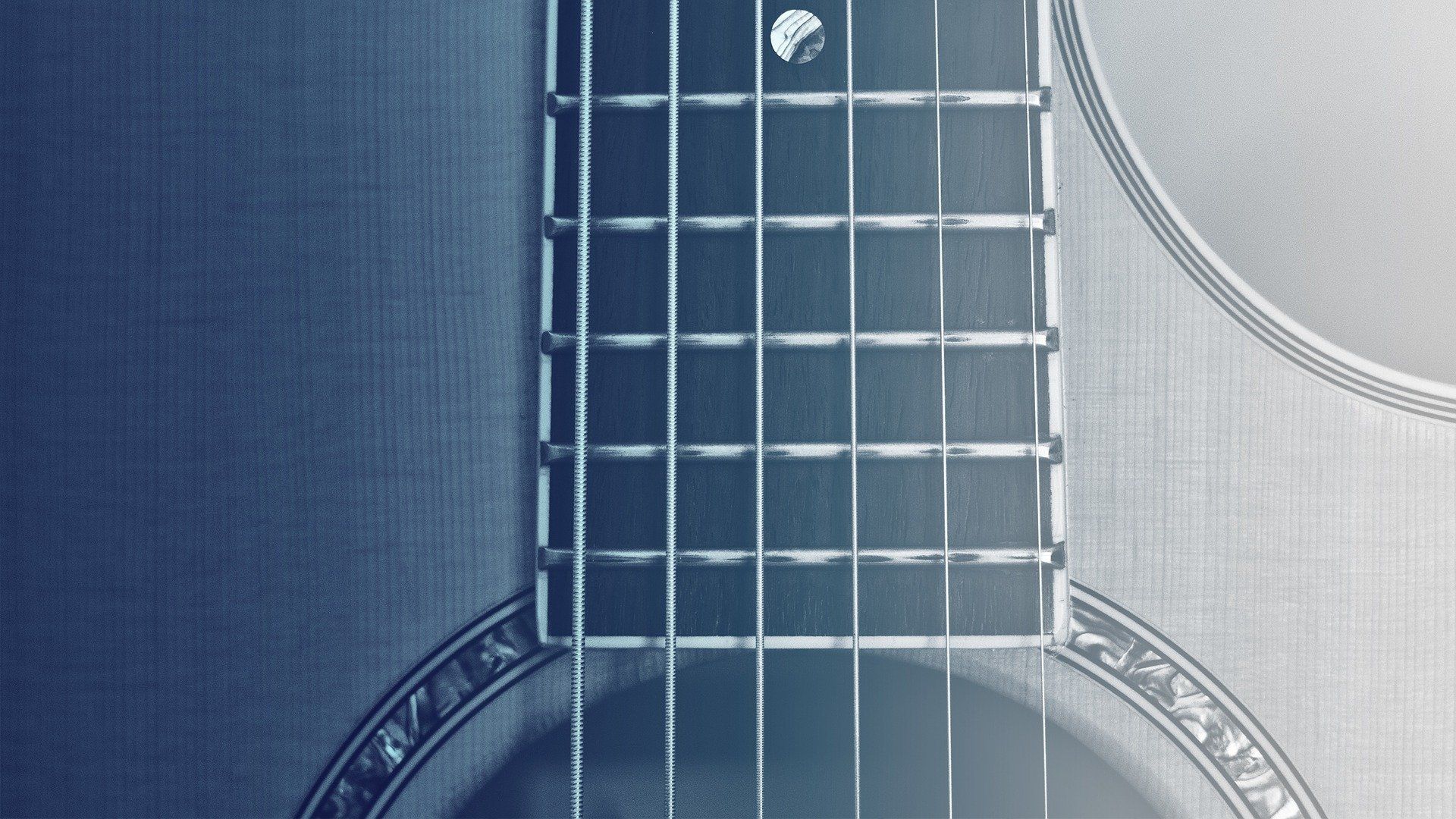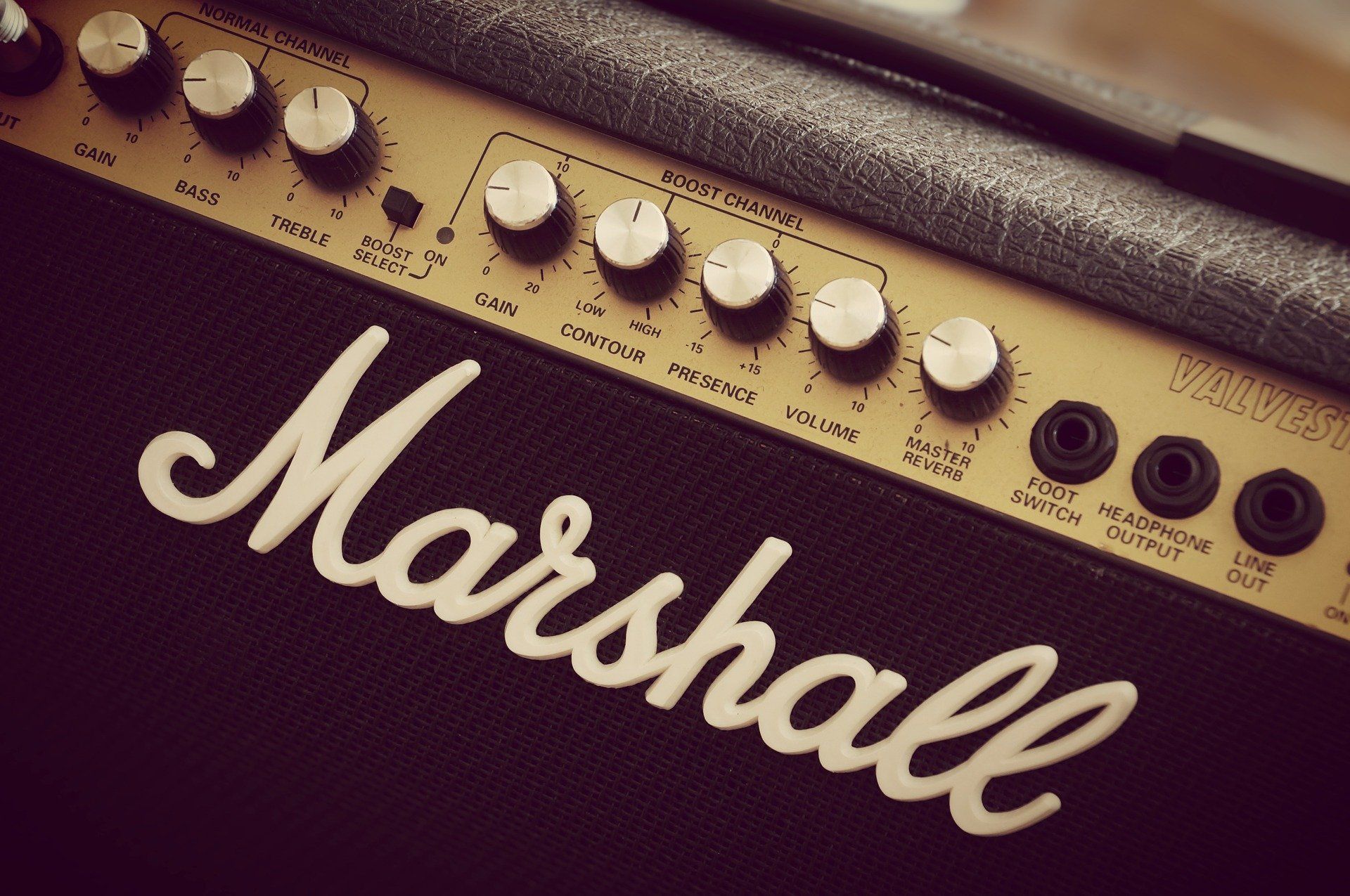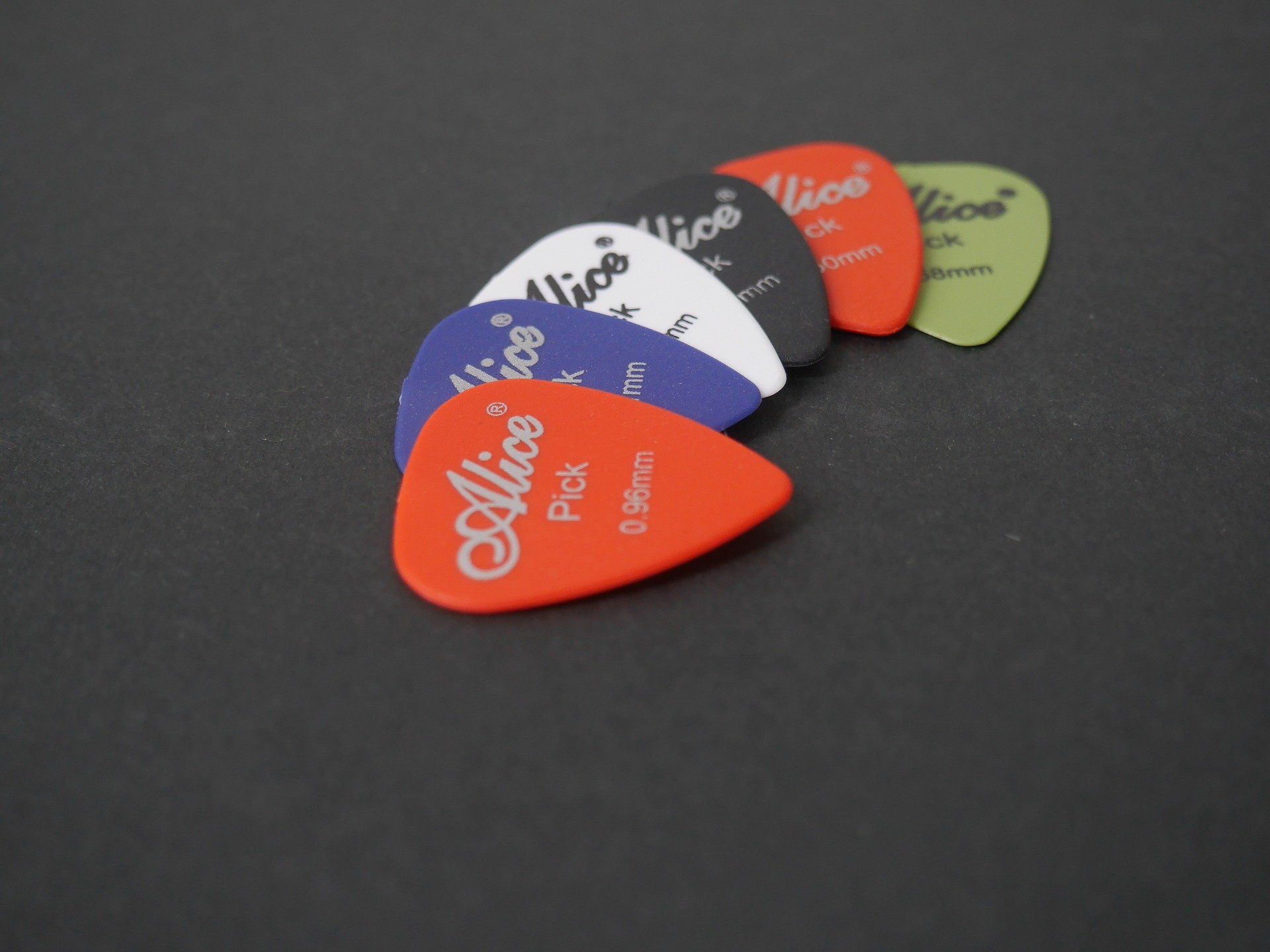Guitar Finger Strength: The Ultimate Guide
Every guitar player wants stronger fingers. Find out the TRUTH about guitar finger strength... and why it might be very different to what you think.

Finger strength is a main goal of millions of guitar players world wide.
Open any guitar magazine and you'll find exercises to "make your fingers stronger" - which will apparently "improve your speed".
People look at their heroes and think "wow! He must have super strong fingers!"
You can even buy products that supposedly increase your finger strength by making you squeeze your hand into a fist against resistance, and there are even full books and lesson programs that aim to make your fingers stronger so you can play better.
The Best Way To Build Guitar Finger Strength
With all these methods, it can be difficult to decide on the best one!
Which exercises will help you build strength the fastest?
In fact, do you even need finger strength in the first place?
By the end of this article you'll know why finger strength isn't
the answer to your guitar troubles, and what to practice instead to ensure you get results every time you sit down to practice.
Finger strength isn't the problem, or the solution - it's a distraction at best.

Why You Don't Need Finger Strength
When you play guitar, does it feel effortless?
Do your fingers glide easily across the fretboard, or do you struggle to get the notes out, forcing your muscles into a tense mess?
If you find yourself tensing up your fingers, arms, or any other body part as you play, then you're using too much unnecessary force.
Of course, it requires some
force to play - you've gotta press the string down - but it's a lot less than most people think.
Even picking the strings and playing fast passages doesn't require lots of strength, as you'll find out.
We'll start by debunking the myths of the fretting hand.
Fretting Hand Troubles
Electric guitar strings are extremely thin. Even the heaviest around rarely go above 1.5mm.
On an acoustic it's not much worse, either.
This means that it requires very little force to press down the string; if you measure it, it turns out to be around the weight of a large apple! Not much at all, is it?

No-one needs to train their strength to lift a large apple.
In fact, it's far
less than the force most players use. Even if you're doing bends, hammer-ons and pull-offs, the force doesn't go above what everyone can do without strength training.
After all - it's just a bit of thin wire.
So why, then, do people find it so difficult to play the notes? If it doesn't require strength then what's stopping everyone from playing as easily as they'd like?
The Problem Hidden in Plain Sight
If the force needed isn't the problem, then what is?
Well... it is
force. Not too little
force, but too much of it.
When you use more tension and try to force the notes out, everything is more difficult to play.
This is because instead of your muscles working together in harmony, the pairs are pushing against each other which prevents you from playing well.
The more force you use, the harder it is to play and the less control you'll have over your sound.
If you press really hard on every note, you won't be able to play very fast and you'll have a hard time making anything sound good.
There's also a much higher injury risk - so learning to play lighter is vital if you want to avoid getting carpal tunnel (or other similar conditions).
Instead, learn to work with
the guitar rather than against
it.
Play lighter (much lighter - as light as you can!) and you'll be rewarded.
Control > Strength
You see, the reason people use too much fretting hand force when they play is because they don't have enough control.
It takes time to build up control in the fingers, so to compensate for this people use more force, thinking that power is the answer.
In the short term, this works - pushing harder when you're playing barre chords, for instance, does make the notes come out clearer, but only because you haven't got the required control to play them without pushing so hard.
The more control you have, the less force you need and the more effortless playing becomes.
Unfortunately though, the short-term solution of "push harder!" quickly becomes habit.
Then when they attempt more difficult stuff, they try to use even more
force - after all, it worked last time, didn't it?
The problem is that they're already using as much finger strength as they can, leading them to think they need even more.
This is where they seek out "finger strength" exercises, leading to the ridiculous number of articles, videos and lessons on the topic.
If you work on playing in a relaxed way, only using as much force as absolutely necessary, then you'll progress much quicker and you'll soon realise that you don't need loads of finger strength after all - the guitar is easy!
It's all about relaxed control over your muscles, which has nothing to do with strength.

Muscle Tension: The Ultimate Tone Destroyer
There's another disadvantage to using lots of force when you play - making your notes go out of tune.
If you play with good, relaxed technique, you'll notice that your finger presses the string down to the metal fret-wire, but not down to the fretboard itself.
On a guitar with large frets you'll notice this even more.
If you use a load of power to force the strings down, though (a symptom of the "finger strength" way of thinking), then the string is
pushed down right to the wooden fretboard.
This makes it bend slightly between the fret bars, and makes your note sound out of tune.
Nobody wants that! All that money spent on a nice guitar and a great setup is wasted if you use too much force when you play.
Play using the minimum force required - anything else is unnecessary and will only hinder you.
How To Eliminate Finger Fatigue Forever

In weight-lifting, if you can only do a couple of reps on a certain weight before getting tired then the solution is to train your strength - to become stronger.
This is necessary because the weights are usually pretty heavy - and you'll definitely need more strength to lift them.
People mistakenly apply this thinking to the guitar, which can be disastrous for their playing and even cause hand/wrist injuries that can prevent playing completely.
You already know by now that it doesn't require much force at all to play notes on the guitar. This means that if you're suffering from fatigue (i.e. tired hands after playing) then more strength isn't the answer.
If you have the control to play the notes with only the minimum force necessary, then endurance won't be an issue because your muscles aren't working hard.
The only time endurance becomes a problem is if you're using too much force to play.
Slow down and relax, and then gradually speed back up without letting the tension back in - this way, finger fatigue won't be an issue.
The cause of endurance problems isn't a lack of strength - it's playing too hard.
The Myth Of Picking-Hand Tone
Now we'll move on to the picking hand.
If you've read any articles about improving your guitar tone, they'll say that "the tone is in the fingers".
This is absolutely correct, but the way they say to improve it is misguided.
They say that "the harder you pick, the better your tone".
Despite there being no evidence for this, people still repeat it as one of the "well-known truths" of guitar playing.
The more force you use to pick, the harder it is to play. Instead, make it easy for yourself
by picking in a more relaxed, effortless manner.
If you're struggling with volume then turn up! Let the amp do the work - it's what it's there for.
There are a few reasons that "pick harder for a better sound" is incorrect.

Picking Hard Ruins Your Tuning
Remember how fretting too hard makes your notes sound out of tune? Picking too hard has the same effect.
The harder you pick, the more fiercely the string vibrates.
If you pick really hard, the string vibrates so much that it stretches - similar to a string bend - and makes the note go out of tune.
This is why picking hard isn't good - it not only makes it harder to play, but also makes you sound worse.
SRV and Hard Picking
People often use Stevie Ray Vaughan as an example of how picking hard makes you sound better.
He's famous for his hard, aggressive picking style, and many people credit this as the reason he sounded great.
The truth is, he sounded good despite
his hard picking, NOT because
of it .
Good picking tone is down to the angle that the pick hits the string, and the position of it (i.e. close to the bridge or close to the neck).
The type of pick you use has a big impact, too - how round it is, what material it's made out of, and so on.
This is a very personal thing and it's something that's unique to each player, so experiment to find your own, individual voice.
If you want to improve your tone, then try out different options for a while and see what you like. You might prefer the harsher sound you get from picking near the bridge, or the mellower sound you get from picking near the neck.
You might prefer to hold the pick flat against the string, or at more of an angle. It's up to you! Experiment, and find out what you
like.

How To Pick Faster
If you want to dramatically improve your picking speed in the long-run, picking relaxed is the way to go.
You've probably found that at the moment if you tense up and push a bit harder, you can get to a slightly higher tempo.
It works in the short-term, but if you do it all the time you'll soon find that you can't pick fast for more than a few seconds, and you'll struggle to improve much over time.
"Forcing" your hands to play faster isn't a very good strategy.
The answer is to slow right down and play as relaxed as possible, using only the minimum force required to hit the note. Remember - let the amp do the work!
Then, slowly speed up while staying relaxed. If you start to feel tense again then slow down; do more relaxed repetition and then speed back up.
This way your speed will naturally improve and you'll be able to play way faster, for way longer, than anyone who "forces" their speed all the time.
Finger strength doesn't help with playing fast at all, because it's all about mental patterns; neural pathways that have been improved through repetition. Playing relaxed is the best way to improve these patterns in the shortest amount of time.
Finger Strength Exercises - The Truth
By now you'll have realised that finger strength isn't
what you need to be a good player, and that it's all about relaxed control.
There's just one question left: If finger strength doesn't
help, then why do people find finger strength exercises helpful? All of those 1-2-3-4 fretting exercises do
help a lot of people to make progress.
Why is this?
Well, it's because they're not really finger strengthening exercises at all. If you were gonna work on finger strength, you'd get some mini weights and do resistance exercises. You wouldn't play guitar licks.
The finger strength exercises people talk about are just patterns of notes that feel awkward to play.
They can't play them very well so they think "hey! It must be because I don't have the strength yet. I'll practice it to get stronger!"
Of course, the real
reason they can't play it isn't down to a lack of strength, but a lack of control. The neural pathways relating to (most often) the third and fourth fingers aren't developed yet, so they try to use strength to compensate for it.
As you now know, this is the wrong way to go about it!
The more you practice these "finger strengthening" exercises, the less awkward they feel. You'll have more control and they'll be easier to play. You're not really improving your strength - your improving your control.
This is why these exercises work - because they're not really strength exercises at all!
You can still practice these exercises, but don't try to "force" the notes out; instead, play so slowly that you can play it perfectly, and then gradually speed up while staying relaxed.
This will develop your control much faster, and you'll be a better player as a result.
Final Thoughts
I hope you enjoyed the article!
Remember: finger strength isn't the problem, or the solution. It's about relaxed control.
If you'd like more then check out the blog
- there's a whole load of free lessons on all manner of topics from chords to all-out shred.
Check out the free Mega-Lessons
too - massive lessons that are 100% free, and cover tonnes of info on one topic. I aim to make these even better than content from others that you'd pay for - and they're completely free!
Have fun, and keep rocking!
